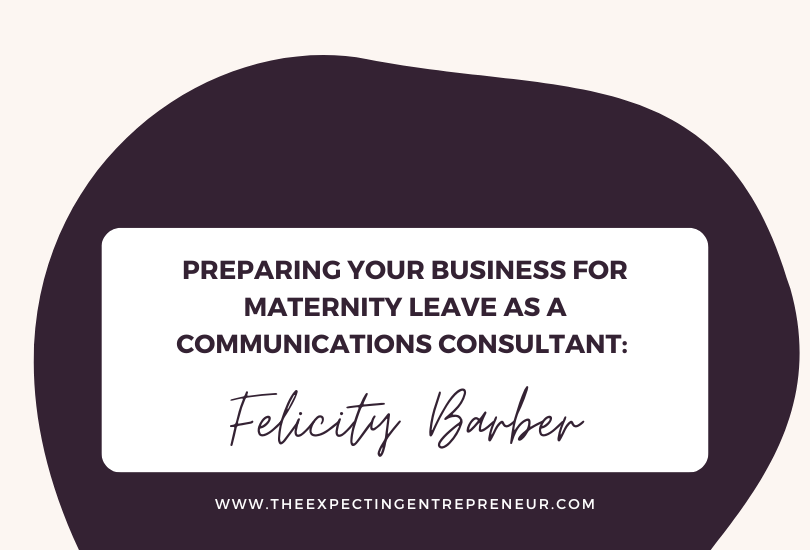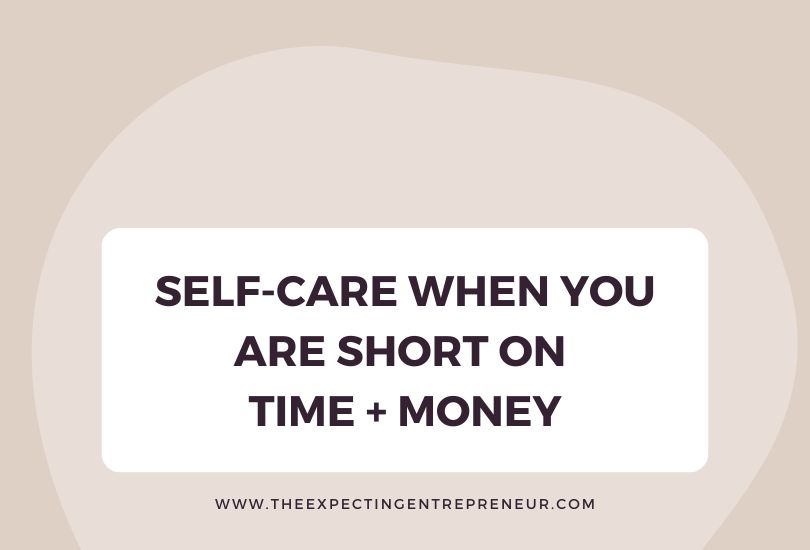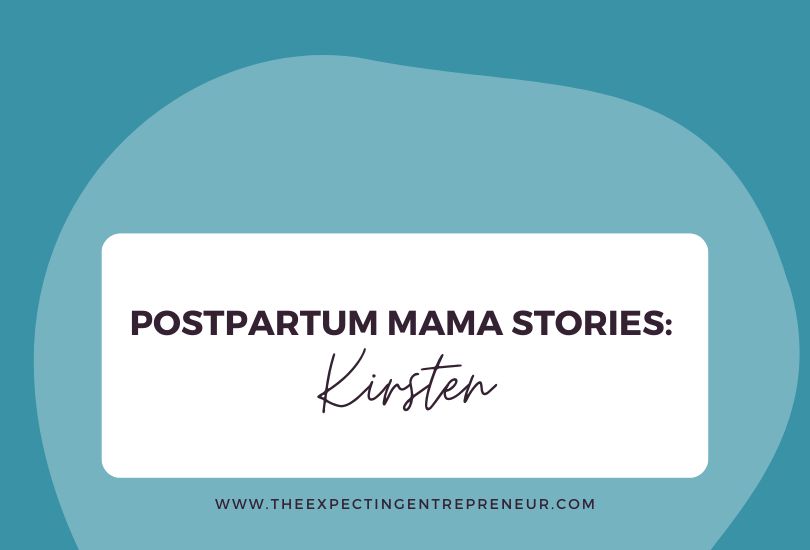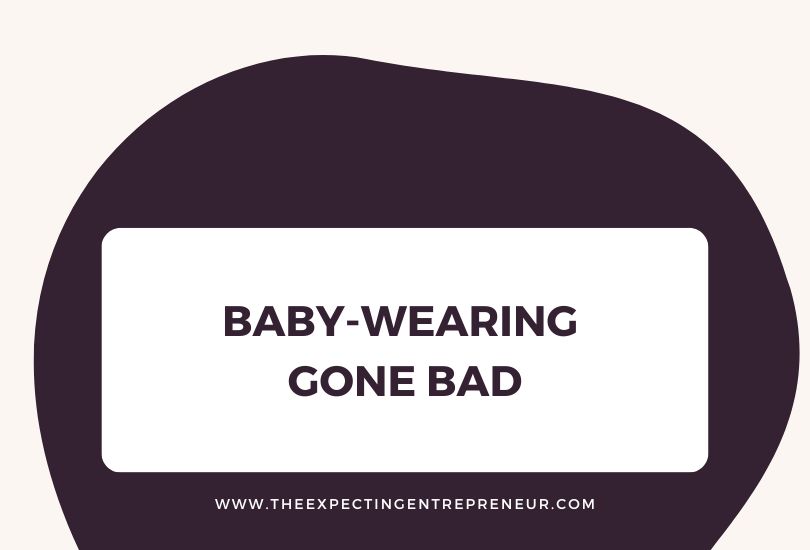Let’s start with a little intro to Felicity’s business…
I’m a communications consultant and the founder Thoughtful Speech, where I offer speechwriting, ghostwriting and content strategy.
I’m a solopreneur and I started my business in 2014 when I moved to the US from the UK, where I was a corporate speechwriter.
The majority of my revenue comes from speeches and storytelling workshops, which is a challenge because they’re not products I can replicate without working more hours. I would love to have a passive revenue stream!
When did you first start thinking about your leave? What kind of feelings did you experience as you first started thinking about your leave and as you planned out details?
I first started thinking about my leave from the moment I saw two lines on a stick! (I’m a planner.)
I was terrified and confused.
Everyone I asked for advice said ‘every woman needs a different amount of time’, which I found very unhelpful because I felt like I wouldn’t know how much time I needed until the baby was here, by which point it would be too late to make plans!
I needed a collection of stories so I could figure out what would work for me, but people didn’t seem that willing to share.
I joined a group call about maternity leave about halfway through my pregnancy with some other working pregnant ladies and that was really helpful, but it wasn’t enough.
As an expat, with a relatively new business, I felt particularly adrift and stuck between two sets of social expectations. My British friends all took off a year after having their babies and my American friends were taking 12 weeks.
I was worried about being judged for taking too little or too much time and what that meant for my business.
I couldn’t figure out where I fit in.
Tell us about the maternity leave you planned for AND what it actually ended up looking like (because, let’s be real, sometimes plans change!)
I planned to work up until I gave birth and then take off four months. Things went to plan… kind of.
At the time I had one major client who was about 80% of revenue. It was a challenging client but I had negotiated a good contract so I was able to save a lot of money for my maternity leave (hooray!). However, as my due date approached they kept pushing deadlines and I was starting to get anxious that the project we were working on wouldn’t get finished before I gave birth.
At 36 weeks I found out my baby was breech, and terrified of a C-section, I made it my mission to get him head down.
I spent lots of time going to a chiropractor and acupuncturist, hanging off the sofa upside down and doing headstands in the swimming pool! They didn’t work, but I was fortunate to have a successful manual version at 37 weeks.
After that, I was emotionally and physically drained.
I had a frank conversation with my major client, and we figured out a plan to get the essentials finished.I still worked up until my due date, but I was doing shorter hours and concentrating on getting content lined up and preparing my taxes.
I allowed myself lots of time for swimming and massages as I was very uncomfortable towards the end of my pregnancy.
I went back to work when my son was 4.5 months old.
I was very lucky – I started doing three short days a week. Soon I increased to three full days, and then moved to four full days when he was six months old. He’s now 17 months and I’d like to work five days again.
What were three systems you put in place to keep things moving without you?
I hired a VA to cover my inbox during the early weeks, but she made obvious mistakes and managing her took more time than it would have taken me to do things myself so I let her go a couple of months in.
With hindsight, I should have hired the VA sooner so that I had more time to get to know him/her.
I scheduled a bit of content, but my business heavily relies on networking and referrals so it took me a couple of months to ramp back up my workload when I went back.
Tell me about your transition back to work after leave
I had a tough time when my little one was brand new.
I was desperate to breastfeed, he couldn’t latch and had drastic weight loss alongside other health issues. Exclusive pumping took its toll on me and I struggled emotionally.
Friends and family were 6000 miles and 8 time zones away in England and I was very, very homesick.
We eventually figured out the breastfeeding thing but every morning when my husband left for work I felt very alone.
When my baby was 9 weeks old I was offered a speech I really wanted to write. We cobbled together some childcare and I took the contract.
It was fantastic to be doing something I actually felt good at.
I went back to work properly when Albert was 4.5 months — we did a nanny share with another local family which has worked out really well.
Our nanny was happy for me to start working part-time and slowly increase my hours.
I sent my client list an email saying I was back and open for business, but reaching out to my network with personal emails yielded more results.
I went back to work in June and by the end of August, my revenue had returned to pre-baby levels.
What, if anything, would you change in retrospect?
I would plan not to do any critical work during the final month of your pregnancy.
Babies can come early, pregnancies can get complicated, and even if neither of those things happened being 8 months pregnant is no joke.
I was tired, sitting for prolonged periods was painful (the yoga ball was a lifesaver) and 8 months in I’d had enough.
Next time I’d plan to have a very light workload for the last four weeks and switch the focus to taking care of myself – breech baby or not. I planned financially to cover the time I had off, but I didn’t factor in the time it would take to get the business up and running again afterward (a couple of months), so I’d think a bit more about that next time too.
What resources for planning would you recommend to pregnant business owners based on your experience?
If you can find other mums who’ve been there and are willing to share their stories, that’s golden.
That’s why I’m so happy to be able to contribute to this post. Having a baby, and a business, living a long way from home, has been one of the hardest things I’ve ever done.
I want other women to know that they’re not alone, it gets easier, and it’s all 100% worth it.
Want more resources about preparing your business for maternity leave? Check out Chapter 4 of The Expecting Entrepreneur.

Felicity H. Barber is a communication consultant, specializing in speechwriting, ghostwriting and content strategy. She has written for executives in numerous industries including tech, finance, and healthcare, in both the USA and UK. She’s a storytelling pro and runs storytelling and messaging workshops for entrepreneurs looking to better tell their brand story. She has been published by Forbes, Time, Mashable and Business Insider. Prior to starting her business, Thoughtful Speech, she was speechwriter to Inga Beale, CEO of Lloyd’s of London.



